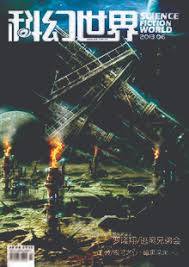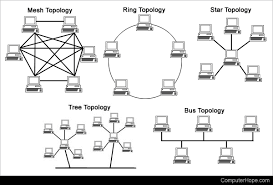The World of Literature: Exploring Different Genres
Literature is a vast and diverse realm that encompasses a wide range of genres, each offering its own unique style, themes, and storytelling techniques. From the fantastical worlds of fantasy to the gritty realism of contemporary fiction, there is a genre to suit every reader’s taste.
Fiction
Fiction is one of the most popular genres in literature, encompassing works that are created from the imagination rather than based on real events. Within fiction, there are various subgenres such as:
- Science Fiction: Explores futuristic concepts, technology, and otherworldly settings.
- Mystery: Involves solving a crime or uncovering hidden truths through suspenseful storytelling.
- Romance: Focuses on love and relationships as central themes.
- Fantasy: Features magical elements, mythical creatures, and epic adventures in imaginary worlds.
Non-Fiction
Non-fiction works are based on real events, facts, and information. This genre includes:
- Biographies: Accounts of real people’s lives and experiences.
- History: Chronicles past events and their impact on society.
- Self-Help: Offers guidance on personal development and improvement.
- Travel Writing: Describes journeys to different places and cultures.
Poetry
Poetry is a form of literary expression that uses rhythm, imagery, and language to evoke emotions and convey meaning. Some common types of poetry include:
- Sonnet: A 14-line poem with a specific rhyme scheme.
- Haiku: A traditional Japanese form with three lines following a 5-7-5 syllable pattern.
- Epic Poem: Long narrative poems that tell heroic tales or myths.
No matter your preferences or interests, the world of literature offers something for everyone. Whether you enjoy escaping into fictional realms or delving into real-life stories, exploring different genres can open up new perspectives and enrich your reading experience.
Exploring the Benefits of Literary Genres: Diversity, Discovery, and Inspiration
- Genres of literature provide readers with a diverse range of storytelling styles to explore.
- Each genre offers unique themes and settings that cater to different interests and preferences.
- Reading across genres can broaden one’s perspective and understanding of various literary techniques.
- Genres help readers discover new authors and works that they may not have encountered otherwise.
- Exploring different genres can spark creativity and inspiration for aspiring writers by showcasing a variety of narrative approaches.
Challenges of Literary Genres: Navigating Predictability, Audience Appeal, and Diverse Perspectives
- Some genres may feel repetitive or formulaic, leading to predictability in plotlines.
- Certain genres may be niche and appeal to a limited audience, making it challenging to find widespread popularity.
- Readers who prefer one genre may miss out on diverse perspectives and storytelling styles offered by other genres.
- Exploring multiple genres can be time-consuming and overwhelming for readers looking to delve deeply into specific themes or topics.
- Genres with complex language or dense narratives may require more effort and concentration from readers, potentially deterring casual readers.
- Genres that rely heavily on cultural references or historical context may alienate readers who are not familiar with those backgrounds.
Genres of literature provide readers with a diverse range of storytelling styles to explore.
Genres of literature offer readers a diverse range of storytelling styles to explore, catering to a wide spectrum of preferences and interests. Whether one seeks the imaginative realms of fantasy, the gripping suspense of mystery, or the emotional depth of romance, genres provide a pathway for readers to immerse themselves in stories crafted with distinct narrative techniques and thematic elements. This diversity not only enhances the reading experience but also allows individuals to discover new genres that resonate with them on a personal level, expanding their literary horizons and fostering a deeper appreciation for the art of storytelling.
Each genre offers unique themes and settings that cater to different interests and preferences.
Within the diverse landscape of literature, each genre presents a distinct advantage by offering unique themes and settings that cater to varied interests and preferences. Whether delving into the futuristic realms of science fiction, unravelling mysteries in suspenseful thrillers, exploring the complexities of human relationships in romance novels, or immersing oneself in magical worlds of fantasy, readers have the opportunity to choose narratives that resonate with their individual tastes and curiosities. This diversity ensures that there is a genre for every reader, providing a rich tapestry of storytelling that captivates and engages audiences across different spectrums of imagination and intrigue.
Reading across genres can broaden one’s perspective and understanding of various literary techniques.
Exploring diverse genres of literature can significantly enhance one’s perspective and comprehension of different literary techniques. By venturing beyond familiar genres and immersing oneself in a variety of writing styles, themes, and narrative structures, readers can develop a deeper appreciation for the art of storytelling. From the intricate world-building of fantasy to the nuanced character development in contemporary fiction, each genre offers a unique lens through which to view the human experience. This exploration not only expands one’s literary horizons but also fosters a more comprehensive understanding of the rich tapestry of storytelling possibilities available within the realm of literature.
Genres help readers discover new authors and works that they may not have encountered otherwise.
Genres play a crucial role in guiding readers towards new authors and works that they might not have stumbled upon otherwise. By categorising literature into distinct genres such as science fiction, mystery, romance, and more, readers can easily explore a diverse range of writing styles and themes. This classification system acts as a roadmap, leading readers to discover hidden gems and emerging talents within the vast landscape of literature. Embracing genres allows readers to step out of their comfort zones, broaden their reading horizons, and uncover literary treasures they may have otherwise overlooked.
Exploring different genres can spark creativity and inspiration for aspiring writers by showcasing a variety of narrative approaches.
Exploring different genres of literature can spark creativity and inspiration for aspiring writers by showcasing a variety of narrative approaches. By immersing themselves in diverse storytelling styles, writers can expand their artistic horizons, experiment with new techniques, and discover unique ways to express their ideas. This exposure to various genres not only enriches their writing skills but also encourages them to think outside the box, leading to the development of fresh and innovative storytelling methods that captivate readers and bring their creative visions to life.
Some genres may feel repetitive or formulaic, leading to predictability in plotlines.
Some genres of literature may fall into the trap of feeling repetitive or formulaic, resulting in predictable plotlines that can diminish the element of surprise and originality in storytelling. When authors adhere too closely to established conventions within a genre, readers may find themselves anticipating familiar tropes and narrative structures, ultimately reducing the impact of the narrative twists and turns. While genres provide a framework for storytelling, it is essential for writers to innovate and push boundaries to keep their work fresh and engaging for audiences seeking new and exciting literary experiences.
Certain genres may be niche and appeal to a limited audience, making it challenging to find widespread popularity.
Certain genres of literature may be considered niche, catering to a specific audience with unique interests and preferences. While these genres often offer rich and immersive storytelling experiences, their appeal may be limited to a smaller segment of readers. This niche nature can present a challenge in achieving widespread popularity and recognition compared to more mainstream genres. However, for those who appreciate the depth and intricacies of these specialised genres, they provide a treasure trove of literary gems waiting to be discovered and cherished.
Readers who prefer one genre may miss out on diverse perspectives and storytelling styles offered by other genres.
In the realm of literature, one notable drawback is that readers who gravitate towards a particular genre may inadvertently limit themselves to a narrow range of perspectives and storytelling styles, thus missing out on the rich diversity that other genres have to offer. By confining their reading choices to a single genre, individuals may forego the opportunity to explore new worlds, encounter different voices, and engage with varied themes that can broaden their understanding of the human experience. Embracing a more eclectic approach to reading across genres can lead to a more enriched and multifaceted literary journey.
Exploring multiple genres can be time-consuming and overwhelming for readers looking to delve deeply into specific themes or topics.
Exploring multiple genres of literature can present a challenge for readers seeking to delve deeply into specific themes or topics. The vast array of genres available can be time-consuming and overwhelming, as each genre offers its own set of conventions, styles, and narrative structures. Readers may find themselves torn between various genres, struggling to focus on a particular theme or topic in depth. However, this diverse landscape also provides an opportunity for readers to broaden their literary horizons and discover new perspectives by venturing beyond their comfort zones. Balancing the desire for exploration with the need for depth can be a delicate yet rewarding endeavour in the world of literature.
Genres with complex language or dense narratives may require more effort and concentration from readers, potentially deterring casual readers.
Genres of literature that feature complex language or dense narratives often demand a higher level of effort and concentration from readers, which can be a deterrent for casual readers. Delving into intricate plots, rich symbolism, and layered themes may require a more focused and immersive reading experience, challenging individuals who seek lighter or more straightforward content. While these genres offer rewarding depth and intellectual stimulation, they may not appeal to those looking for easy, breezy reads that require minimal cognitive engagement.
Genres that rely heavily on cultural references or historical context may alienate readers who are not familiar with those backgrounds.
Genres of literature that heavily incorporate cultural references or historical context can present a challenge for readers who are not well-versed in those specific backgrounds. While such elements can add depth and authenticity to a story, they may also alienate individuals who do not share the same cultural or historical knowledge. This barrier to understanding can hinder the reader’s engagement with the text, resulting in a sense of exclusion or confusion. Authors and creators must strike a balance in integrating these elements effectively, ensuring that they enhance rather than impede the overall reading experience for all audiences.



